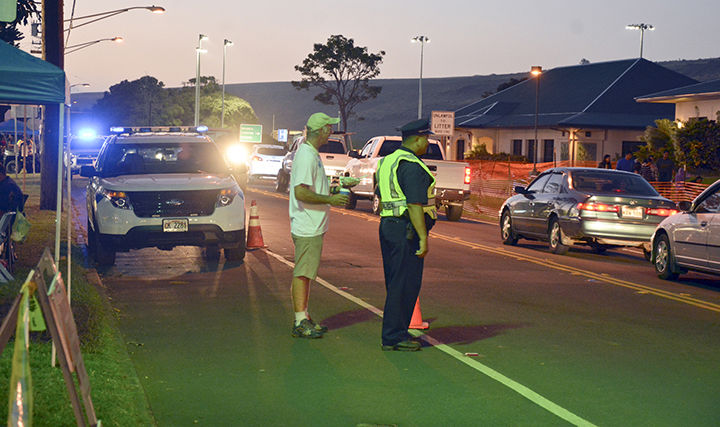HONOLULU — Hawaii lawmakers are pushing a plan that could increase the fuel taxes that drivers pay at the pump.
The proposal comes as states throughout the nation are dealing with crumbling roads and infrastructure at the same time federal funds for highways are declining.
Nationwide, the total amount of money available to states from the Federal Highway Trust Fund has declined 3.5 percent during the five-year period that ended in 2013, according to an analysis by The Associated Press. In Hawaii, per capita spending of those federal dollars declined 1.6 percent during that period of time.
But while the funds are deteriorating, so are the roads. And the cost to fix them is mounting.
“It’s not only disturbing, but it’s downright irresponsible,” said Rep. Matthew Lopresti, D-Ewa Beach, vice chairman of the House Committee on Transportation. “States are going to have to step in to cover the gap … we have a crumbling infrastructure in this country, and I know it’s not just in Hawaii, it’s all across the nation.”
A proposal in the Hawaii House of Representatives seeks to fill some of that gap by shifting the way the fuel tax is calculated.
The tax is currently set up to draw down 17 cents for each gallon of regular fuel sold. The bill would shift the emphasis away from the amount of fuel sold and instead focus on the price of the fuel — a significant distinction in the age of fuel-efficient cars, when individuals’ consumption levels may be declining.
The proposal states that the fuel tax would be either 17 cents per gallon or an unspecified percentage of the wholesale price, whichever is greater.
It passed out of the House Committee on Finance Wednesday, with the percentage left blank.
Rep. Kyle Yamashita, who introduced the bill, didn’t return phone calls for comment. But Kauai County Councilman Gary Hooser voiced his concerns about the plan.
“HB1486 is simply a way to increase taxes on Hawaii residents who are already struggling from our high cost of living,” said Hooser. “Increasing the cost of gasoline at the pump hurts all of us, but it hurts large families the worst.”
Hooser added, “I am hoping Sen. (Ron) Kouchi will kill this in the Senate.”
Rep. Gene Ward, R-Hawaii Kai, was the only member of the House Finance Committee to vote against the proposal.
“People who voted for it were voting for a blank check,” said Ward. “We keep talking about helping the middle class … and we’re going to stick them with another fuel tax. It’s unfair.”
Aloha Petroleum Ltd. was among the companies that opposed the bill, saying they’re against “any attempt to increase taxes because they are ultimately passed on to consumers.”
The State Department of Transportation said in written testimony that it appreciates the intent of the bill, but that the proposed solution would create confusion for taxpayers and administrative challenges.
Meanwhile, the department plans to increase its budget for special maintenance projects by $70.9 million in both fiscal years 2016 and 2017, according to Gov. David Ige’s budget proposal. The majority of those maintenance funds are going to be used for road resurfacing projects, minor bridge repairs and major tree trimming, said Tim Sakahara, spokesman for the Department of Transportation, in an email.
But there won’t be money left over to work on alleviating Hawaii’s traffic problems — which are often cited as among the worst in the nation.
“Due to the limitation of funding, the overall priority for the department is to improve safety and preserve the system of roads and bridges that we currently have,” Sakahara said. “As such, we are prioritizing roadway and bridge improvement projects over capacity and congestion relief moving forward.”
A less-bumpy ride would be welcome relief to many Hawaii drivers.
“It’s shocking how bad some of the roads are here,” Lopresti said.
•••
The Garden Island contributed to this report.





